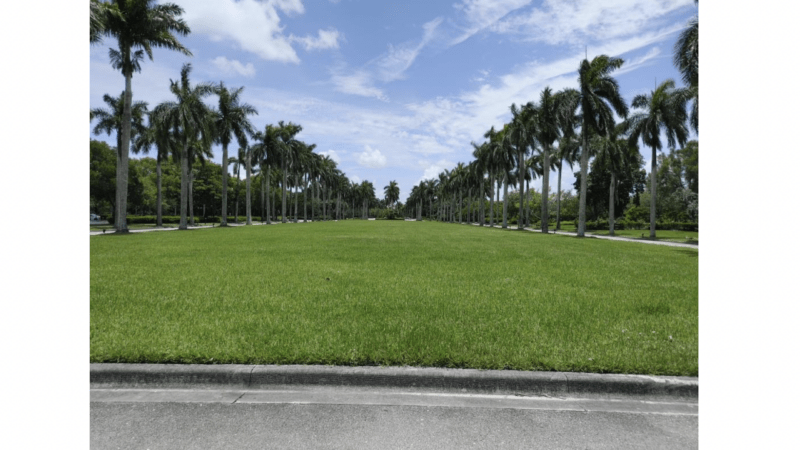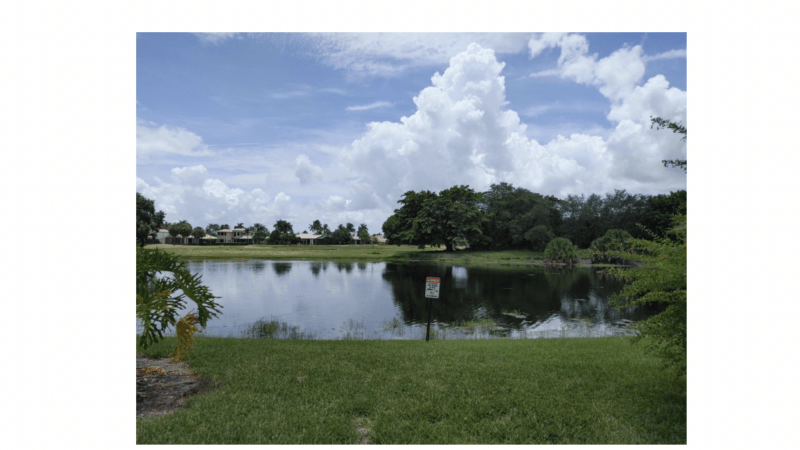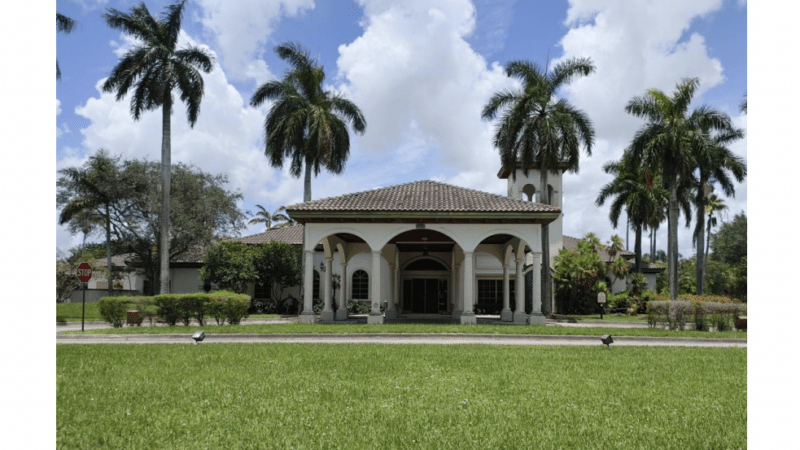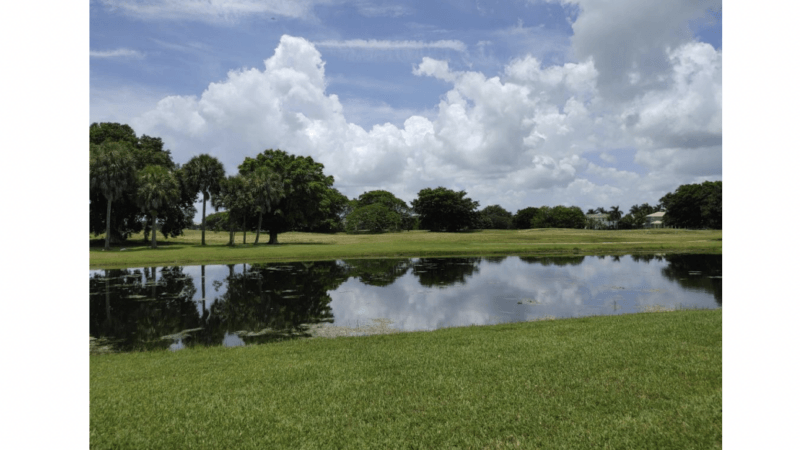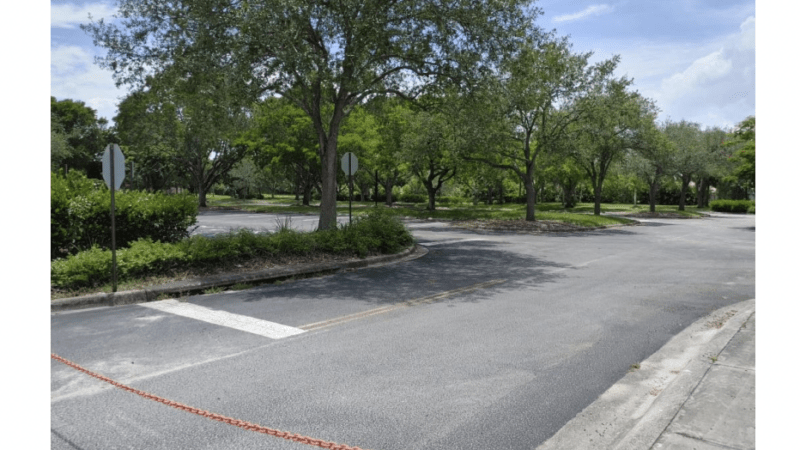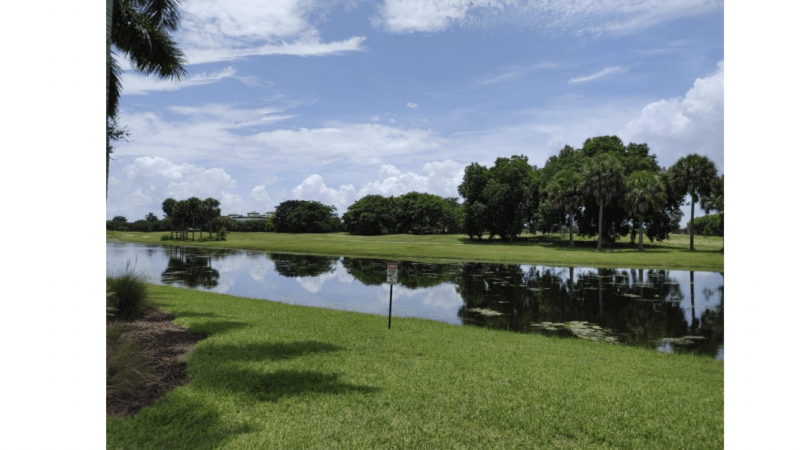By Bryan Boggiano
After almost four hours of contentious debate, the city commission narrowly approved the next step to approve purchasing 65 acres of the former Heron Bay Golf Course from the North Springs Improvement District.
If the deal succeeds, Parkland will purchase the property from NSID for $25.4 million.
Mayor Rich Walker said purchasing the former Heron Bay Golf Course will control the city’s future and future development.
“This is not [just] about Heron Bay; this affects every resident in Parkland,” he said. “Whatever it is you’re looking for, this has an impact on your daily life.”
The development focuses on a roughly 65-acre area, with about 47 acres in Parkland and the other 18 acres in Coral Springs, all spread across four parcels of land.
The first parcel of land lies between two canals immediately east of Heron Bay Run Drive. It covers 6.7 acres, all of which lie in Parkland. This is the furthest north and west portion of the land.
The second parcel, covering 40.48 acres, lies immediately north of the Fort Lauderdale Marriott Coral Springs and covers most of the land.
The remaining two parcels of land occupy 17.83 acres directly north and west of the Marriott, which lies within Coral Springs, on the southern end of the property.
According to city documents, plans for the first parcel and the northern part of the second include roughly 60 residential properties on 22.4 acres.
The rest of the second parcel and the entire third parcel, totaling 33.3 acres, would either be commercial property, green space, or a mix of both.
The final parcel, located west of The Marriott, would be devoted to 27 single-family residential units.
Atlantic Blue Consulting, Inc appraised the property on July 24 and found the “as-is” value to be $19,510,000, or about $300,000 per acre. This is based on the property’s current configuration and condition, without residential or commercial development. A hypothetical and best-use scenario puts the market value of the land at $30.63 million.
In their appraisal, Aucamp, Dellenback, and Whitney found the as-is market value to be $13 million. The best-use scenario market value was $34,850,000.
The purchasing terms did not come without controversy.
Commissioner Simeon Brier raised concerns about lifting the restrictive covenant on barring development in Heron Bay until 2027 and about easements and accessibility.
Vice Mayor Ken Cutler said that considering inflation, the peaking real estate market, and appraisals showing that the city could lose money, the city has to be careful in further negotiations with NSID and future contractors.
“We have financial risks all over the place,” he said.
Cutler also said that because of pesticide use on the land, arsenic could be an issue. Walker stated that Environmental Risk Management would conduct a Phase II study.
Multiple commission members also cautioned that issues over school zoning and getting Coral Springs to commit to buying their portion of the land from Parkland would likely remain.
Commissioner Bob Mayersohn said building more residential properties could exacerbate overcrowding in city schools. Commissioner Jordan Isrow echoed these sentiments, stating that the zoning issues would likely be “contentious.”
Although Coral Springs expressed general interest in collaborating with Parkland on the land purchase and development, Cutler reminded commission members there is no written agreement or city commission vote making it official.
Mayersohn criticized the land development for lacking a specific vision, warning that the land purchase could have consequences that ripple beyond finances.
Walker cited resident surveys and the city’s financial situation. He said that residents want more amenities in the city. Walker also stated that as more homes are built and homesteaded, the city’s tax base will be reduced.
To keep up with their level of service, he warned that failing to build commercial property to add to city revenue could result in higher millage rates.
“I do not want to be the mayor who raises taxes,” he said.
Isrow similarly endorsed the purchase, stating that it would give Parkland the power to control its land and preserve the city’s character.
“This is about protecting what all of us have come to know and love,” he said.
Residents, too, expressed their concerns.
Steve Noyola stated that the city should focus more on commercial property and await the Phase II results before moving forward. Matt Harris, too, expressed concern over arsenic.
Heron Bay residents Mark Bosua and Glenn Cooper thought purchasing the land would give the city more control over its future than an outside developer.
Ultimately, Isrow moved to approve the ordinance, which Brier seconded.
The ordinance passed 3-2, with Walker joining Isrow and Brier to support it. Mayersohn and Cutler opposed the ordinance.
For the second reading, the purchase faces an uphill battle.
The ordinance making the Heron Bay land purchase official needs a 4-to-1 approval from the commission.
Cutler and Isrow brought up capping the amount of residential property, while Brier and Cutler emphasized the need to further collaborate with Coral Springs officials on the land purchase.
If the commission approves the final contract, they will enter a 60-day due diligence period where they can back out of the deal for any reason.
One potential reason the commission brought up for potentially backing out in the future is if the Phase II results come back unfavorable.
Brier recommended extending this period, which takes effect when both Parkland and NSID sign the contract, to either 90 or 100 days.
The commission did not set a date for the second reading, but they will schedule the final vote for either Sept. 12 or Sept. 21.
Send Your News to Parkland’s #1 Award-Winning News Source, Parkland Talk. Don’t miss reading Coral Springs Talk, Margate Talk, and Tamarac Talk.
Author Profile

Related
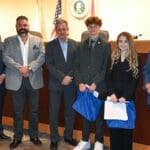 NewsNovember 22, 2023Parkland City Commission Recognizes 2 ‘Mayor for a Month’ Participants
NewsNovember 22, 2023Parkland City Commission Recognizes 2 ‘Mayor for a Month’ Participants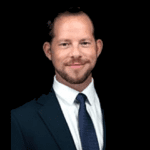 NewsNovember 13, 2023Jordan Isrow Named Parkland’s New Vice Mayor
NewsNovember 13, 2023Jordan Isrow Named Parkland’s New Vice Mayor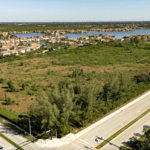 NewsNovember 12, 2023Parkland Commission to Vote on $600K in Upgrades for Wedge Preserve Park Development
NewsNovember 12, 2023Parkland Commission to Vote on $600K in Upgrades for Wedge Preserve Park Development NewsNovember 3, 2023Soldier Rush Obstacle Course Competition Races into Parkland Nov. 11
NewsNovember 3, 2023Soldier Rush Obstacle Course Competition Races into Parkland Nov. 11




